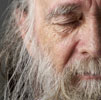
Peter Bates argues that more attention needs to be paid to poor personal hygiene and its contribution to social exclusion
Almost every health or social care worker knows someone who neglects their personal hygiene. Some people so trouble the public’s eye or nose that they empty cafés, miss out on job opportunities and get minimal help from services. Despite the pressure shower of cosmetics advertising, they remain unwashed, the butt of crude humour and disdain, shut out of friendship circles and unkissed. Is this the neglected face of exclusion, a huge but ignored cause of isolation, inequality and misery?
In response, many of us feel baffled, unsure what to do. We hear defensive talk about poor hygiene as a lifestyle choice but that misses the point that society is fiercely critical of those who do not wash. Such individuals are unfairly consigned to an isolated existence with few opportunities and many risks, including the loss of their contribution to the economy and social capital, and an increase in costs as the big society retreats and the person is obliged to rely on paid staff.
Despite the prevalence of the issue, poor personal hygiene remains little understood. Studies of health and well-being have ignored the folklore belief that if you smarten up you will feel better, while those who analyse inequality and social cohesion have paid no attention to the relationship between hygiene, engagement and safeguarding.
Interactive guide to how social workers can handle cases of self neglect
More from Community Care on self-neglectThe five Rs of poor personal hygiene
● Respect – How is the person spoken about? Are you hopeful about the potential for them to grow, develop and contribute to the lives of others?
● Risk – What are the hazards to well-being, mental and physical health, and community relationships for everyone who might be affected?
● Reason – What is the person’s own perspective on their self-care and what expectation do you have for their situation? For example many drugs used in psychiatry increase sweat production and a variety of conditions weaken the sense of smell.
● Resource – Does the person own a toothbrush and the other things they need for maintaining personal hygiene, including access to a safe, warm and private place?
● Refer – Who else should be involved right now? If the situation is deteriorating, what would trigger further action from you, the landlord, environmental health, mental health services or others?
There are at least five reasons for the neglect of neglect. First, humans have an in-built disgust reaction that triggers flight when faced with potentially fatal sights and smells. It’s a powerful response that sometimes prevents us even thinking about the stimulus. That reaction is flexible and may currently be turned on obese people and benefit frauds as well. Second care of the body may be gendered and seen as trivial and merely cosmetic rather than as a serious topic for research and practice.
Third, poor hygiene is not viewed as a substantial issue in itself but peripheral to more important problems such as verminous property, hazards to children or limited mental capacity. Fourth literature is scarce, especially from the viewpoint of those with poor personal hygiene, so we remain intuitive rather than analytical. Finally, experience suggests that it is hard to make a difference so ignoring the problem is less demoralising especially when we genuinely do not know what to do and previous attempts have failed.
Despite these shushing forces, raising the topic with care workers always yields lively conversation. Every team grapples with the problem of what to do in a world devoid of theoretical models, evidence-based practice and award-winning projects.
Staff, relatives and neighbours oscillate between ignoring the issue, cajoling the person and managing their own emotions. When offered a conference invitation, one worker saw it as an insulting allegation that their particular group were being viewed as uniformly dirty. We urgently need to understand this complex issue better if we are to offer people the chance to escape from the personal rejection, social exclusion and danger that accompanies a lifestyle of poor hygiene.
About the author: Peter Bates is the head of social inclusion at the National Development Team for Inclusion (NDTi)
What do you think? The Join the debate on CareSpace
Keep up to date with the latest developments in social care. Sign up to our daily and weekly emails


 Assistive technology and dementia: practice tips
Assistive technology and dementia: practice tips  A trauma-informed approach to social work: practice tips
A trauma-informed approach to social work: practice tips 




 Find out how to develop your emotional resilience with our free downloadable guide
Find out how to develop your emotional resilience with our free downloadable guide  Develop your social work career with Community Care’s Careers and Training Guide
Develop your social work career with Community Care’s Careers and Training Guide  ‘Dear Sajid Javid: please end the inappropriate detention of autistic people and those with learning disabilities’
‘Dear Sajid Javid: please end the inappropriate detention of autistic people and those with learning disabilities’ Ofsted calls for power to scrutinise children’s home groups
Ofsted calls for power to scrutinise children’s home groups Seven in eight commissioners paying below ‘minimum rate for home care’
Seven in eight commissioners paying below ‘minimum rate for home care’
 Facebook
Facebook X
X LinkedIn
LinkedIn Instagram
Instagram
Comments are closed.